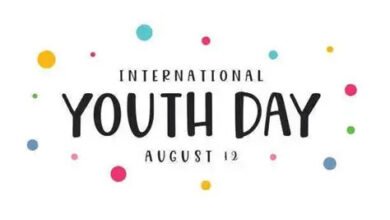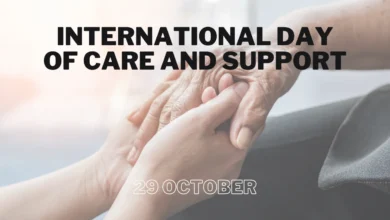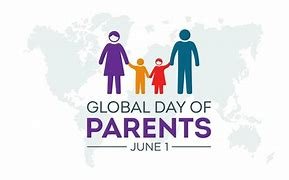International Day of Democracy 2025: Building a Future Where Children’s Voices Matter

The International Day of Democracy, observed each year on September 15, was established by the UN General Assembly in 2007 to strengthen democratic principles globally. Since its first observance in 2008, it has brought the world together through debates, workshops, cultural programs, and civil society gatherings.
For children, the most vulnerable members of society, this day represents a commitment to protecting their rights, prioritizing their education, and ensuring their voices are heard.
Theme of International Day of Democracy 2025
The theme “From Voice to Action” highlights the need to move beyond words and transform democratic participation into meaningful impact.
In a world facing constrained civic space and growing disinformation, it underscores the urgency of building trust, fostering dialogue, and strengthening shared decision-making.
What is Democracy?
Democracy is a form of government where people or their elected representatives hold the ultimate power. Its core values include:
- Free and fair elections
- The rule of law
- Political equality
- Respect for fundamental rights
- Government accountability
True democracy protects minorities even when the majority prevails. For children and youth, democracy is more than an abstract principle; it is the right to go to school, speak freely, dream of a future, and one day become leaders who shape their societies.
People are what give democracy its power, their opinions, their decisions, and their participation in forming their communities. It thrives when rights are upheld, especially for those who are frequently left behind.
In his remarks, UN Secretary-General António Guterres praised “the courage of people everywhere who are shaping their societies through dialogue, participation, and trust,” saying that these endeavors are more important than ever “at a time when democracy and the rule of law are under assault from disinformation, division, and shrinking civic space.”
Building trust, communication, and collaborative decision-making is more important than ever in an era of declining civic space and growing misinformation. With its foundation in the idea of “We the Peoples,” this event seeks to demonstrate democracy as a dynamic force for initiative, optimism, and collaboration.
History of the International Day of Democracy
The UN General Assembly established this day in 2007, with the first observance on September 15, 2008. The date connects to the 1997 Inter-Parliamentary Union’s Universal Declaration on Democracy, which affirms principles such as:
- The right to participate in public life
- Respect for human rights
- Transparent governance
- Independence of the press and judiciary
Since then, the International Day of Democracy has become a platform to reaffirm these values, address threats to democracy, and encourage participation by citizens.
Significance of the International Day of Democracy
The day provides an opportunity to evaluate the state of democracy globally and to ask: Are children being given a fair and safe environment to grow?
Key elements of democracy, freedom, human rights, and periodic elections with universal suffrage are not abstract ideals. They shape the daily lives of children. A democratic society is one where children are safe from violence, enjoy equal access to education, and grow up with dignity.
UNESCO has played a major role in strengthening democracy, particularly during transitions. Its work in youth empowerment, education, freedom of expression, and scientific progress underlines that democracy is most meaningful when it secures a better future for children.
Importance of the International Day of Democracy
a. Promoting Democratic Governance
Inclusive and transparent governance ensures that institutions protect families and children.
b. Encouraging Public Participation
Democracy empowers parents and young people to shape policies that affect schools, healthcare, and community safety.
c. Protecting Human Rights
Civil liberties such as freedom of speech, press, and association create a safe environment for children to grow, learn, and thrive.
d. Preventing Democratic Regression
Resisting authoritarianism and corruption protects the future of children, who are often the first to suffer when societies collapse into instability.
Events and Activities
Around the world, the day is marked through:
- Global awareness campaigns led by the UN, governments, and civil society
- Educational programs such as lectures, debates, and discussions in schools and universities
- Town halls and public forums where citizens voice concerns about governance
- Media engagements, documentaries, talk shows, and news specials on democratic rights
- Voter registration drives to encourage participation, particularly among young people
- Training and workshops to enhance civic leadership and political literacy
- Cultural events, including art, film, and theater, that celebrate freedom, justice, and equality
- Advocacy campaigns calling for reforms to strengthen democracy and protect children’s future
Challenges Facing Democracy
i. Weak institutions
Weak or vulnerable parliaments, courts, and electoral bodies often fail to safeguard children’s rights.
ii. Corruption
When leaders prioritize personal gain, children are deprived of education, healthcare, and protection.
iii. Digital disinformation
False information polarizes societies, leaving young people confused and misled.
iv. Security threats
War, terrorism, and insurgencies rob children of safety and stability.
The Way Forward
1. Impartial Institutions
Independent courts and electoral bodies must ensure justice that protects every child.
2. Inclusive Participation
Women and youth should be central to governance so children’s needs are not ignored.
3. Accountability and Transparency
Trust in government must be restored to secure resources for child welfare.
4. Civic Education
Schools, media, and civil society must teach children values of respect, tolerance, and responsibility.
Conclusion
Without accountable governments, societies cannot guarantee children quality education, proper healthcare, or a safe environment.
On this International Day of Democracy, the world must pledge to turn words into action by strengthening institutions, empowering citizens, and upholding justice and freedom.
When democracy thrives, children inherit a world where they are free to learn, dream, and shape their futures with dignity and opportunity.





